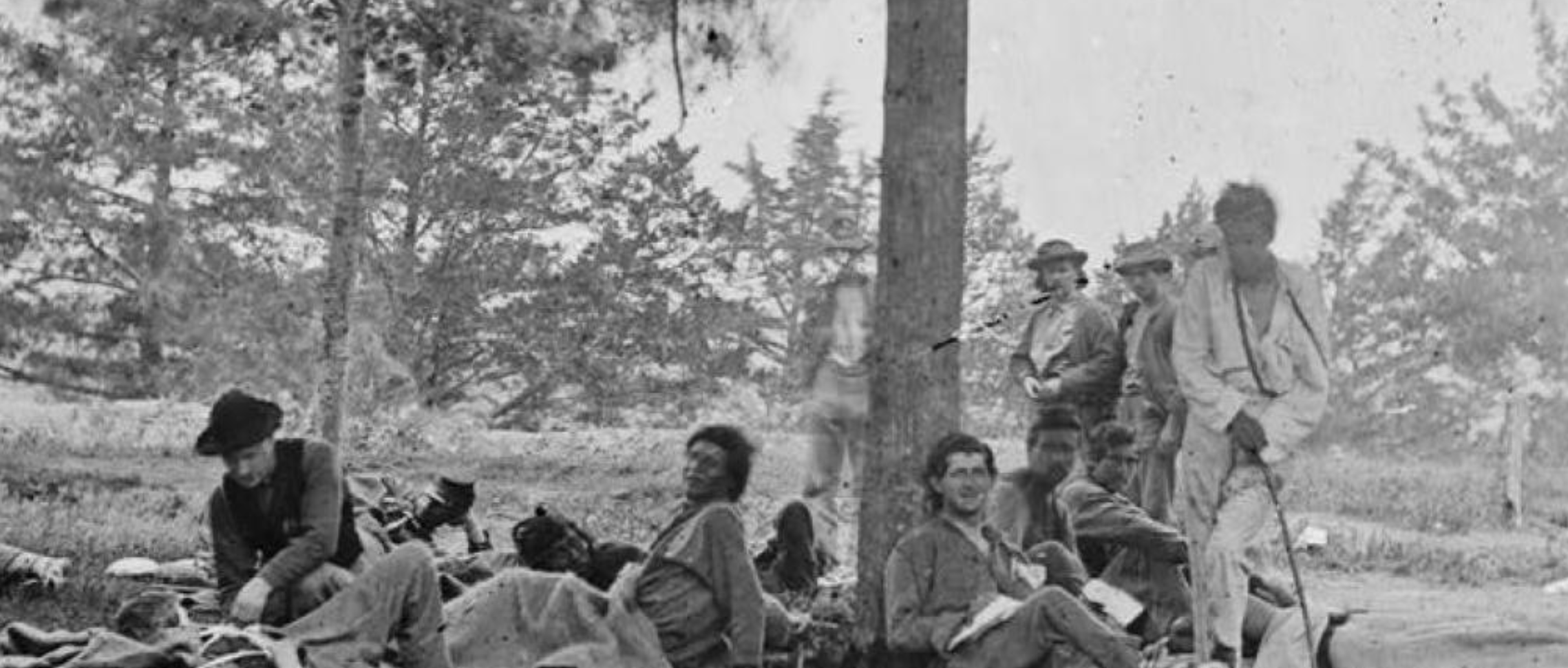
- Details
- By Kaili Berg
Much has already been written about the 100th anniversary of the Indian Citizenship Act of 1924, also known as the Snyder Act.
Many Americans do not know, even before being U.S. citizens, Native Americans have fought in wars to defend the United States of America. Even before being U.S. citizens, Native Americans have displayed courage in defense of a nation that historically denied them full rights, including the right to vote.
This commitment spans across American history starting with the Revolutionary War. Their participation began during colonial conflicts and continued through the Revolutionary War, the War of 1812, and the Civil War.
During the Civil War, a group of 139 Native Americans, mostly Odawa and Ojibwe, from Michigan formed Company K, which were sharpshooters.
Company K tried to muster at the start of Civil War, but were denied. The US Government thought that Native Americans were barbaric, blood thirsty, and couldn’t be controlled during war, according to history written by the Little Traverse Bay Bands of Odawa Indians, based in Harbor Springs, Michigan.
Company K was the largest, all Indian regiment in the Union Army during the Civil War.
During World War I, some 12,500 Native Americans fought to save democracy, which was one of the main reasons Rep. Homer P. Snyder (R-NY) pushed for the Indian Citizenship Act. The bill was named for him.
Historically, American Indians and Alaska Natives have the highest record of military service per capita when compared to other ethnic groups, according to the National Indian Council on Aging. They also serve in the U.S, Armed Forces at five times the national average.
During World War II, Native Americans continued to serve with distinction. The most celebrated contribution came from the Navajo Code Talkers, who developed an unbreakable code based on their native language.
This code played a crucial role in the Pacific Theater, significantly aiding U.S. military operations. In addition to the Navajo, other tribes such as the Comanche, Choctaw, and Lakota also contributed code talkers.
Before the Indian Citizenship Act of 1924, Native Americans' citizenship status was complex and inconsistent. While the Fourteenth Amendment granted citizenship to all persons born in the U.S., this did not automatically apply to Native Americans. Some gained citizenship through treaties, land allotments, or military service, but many remained without formal recognition.
The push for comprehensive citizenship rights for Native Americans was influenced by several factors. The assimilation policies of the late 19th and early 20th centuries aimed to integrate Native Americans into mainstream society, often through coercive measures.
Additionally, the impressive service of Native Americans in World War I highlighted the incongruity of denying citizenship to individuals who had risked their lives for the country.
On June 2, 1924, President Calvin Coolidge signed the Indian Citizenship Act into law. The act granted U.S. citizenship to all Native Americans born within the territorial limits of the country and acknowledged contributions and aimed to rectify the injustices of the past.
However, the granting of citizenship did not immediately translate to full civil rights. Many states continued to deny Native Americans the right to vote, often through discriminatory practices and legal obstacles. Utah was the last state to allow Native Americans to vote. They did so after they lost a court case in 1957.
It wasn’t until the Civil Rights Movement of the 1960s that many of these barriers began to be dismantled, leading to greater political and social inclusion.
The Indian Citizenship Act of 1924 was a significant step towards recognizing the rights and contributions of Native Americans. It acknowledged their role in the nation’s history and laid the groundwork for future advancements in civil rights.
However, it also highlighted the ongoing challenges Native Americans faced in achieving true equality and representation, even today.
Despite these hard-won victories, Native voters still encounter significant obstacles when attempting to exercise their right to vote. These obstacles include literacy tests, intimidation, poll taxes in the past, and today, challenges like geographic isolation, lack of broadband access, limited transportation, and insufficient polling and registration sites, according to the United States House of Representatives.
More Stories Like This
Native News Weekly (August 25, 2024): D.C. BriefsNavajo Nation Mourns the Passing of Former Vice President Rex Lee Jim
Deb Haaland Earns Endorsement From Communications Workers of America Local 7076
University Soccer Standout Leads by Example
Two Native Americans Named to Democratic Congressional Campaign Committee's“Red to Blue” Program
Help us defend tribal sovereignty.
At Native News Online, our mission is rooted in telling the stories that strengthen sovereignty and uplift Indigenous voices — not just at year’s end, but every single day.
Because of your generosity last year, we were able to keep our reporters on the ground in tribal communities, at national gatherings and in the halls of Congress — covering the issues that matter most to Indian Country: sovereignty, culture, education, health and economic opportunity.
That support sustained us through a tough year in 2025. Now, as we look to the year ahead, we need your help right now to ensure warrior journalism remains strong — reporting that defends tribal sovereignty, amplifies Native truth, and holds power accountable.
 The stakes couldn't be higher. Your support keeps Native voices heard, Native stories told and Native sovereignty defended.
The stakes couldn't be higher. Your support keeps Native voices heard, Native stories told and Native sovereignty defended.
Stand with Warrior Journalism today.
Levi Rickert (Potawatomi), Editor & Publisher


